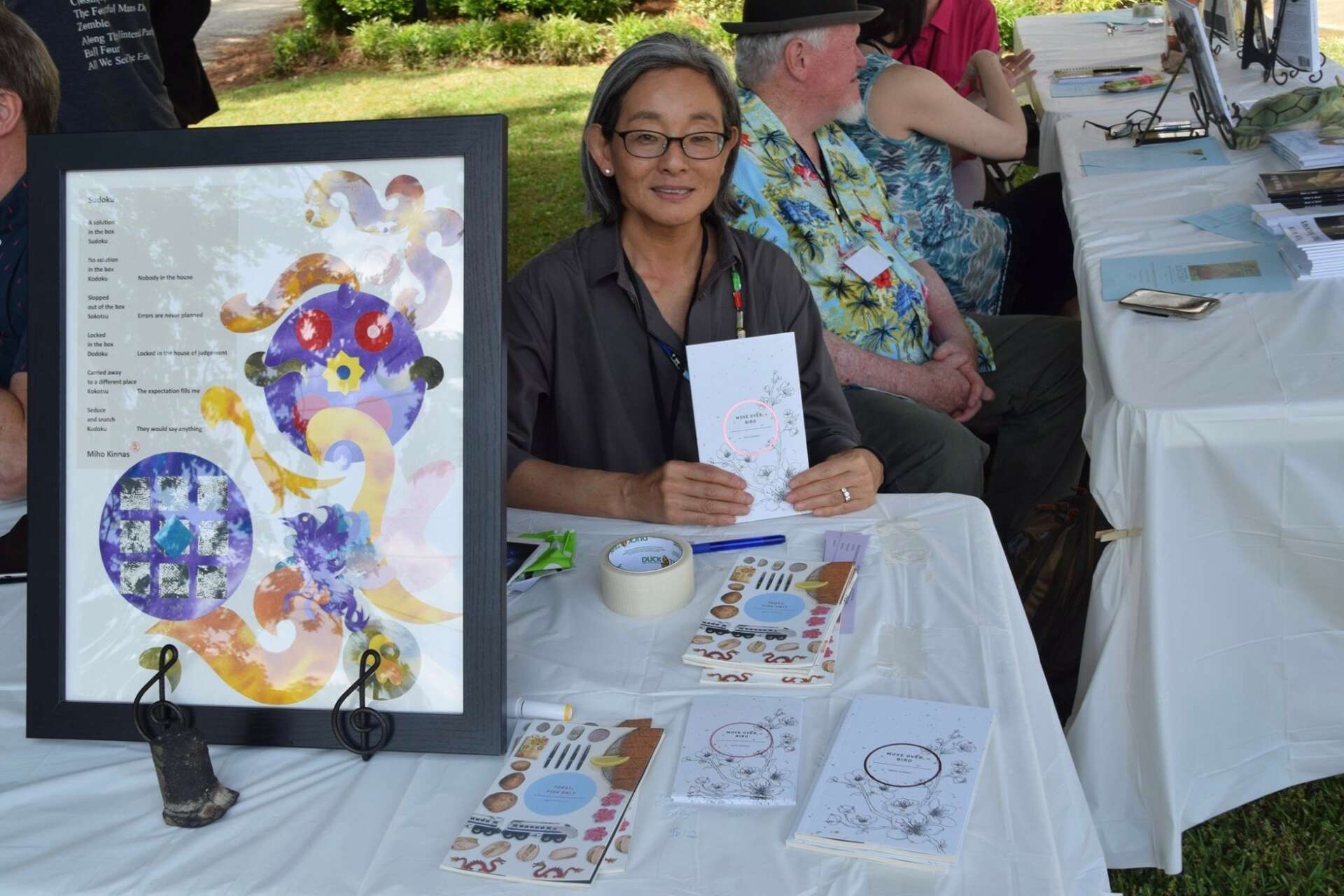We recently connected with Miho Kinnas and have shared our conversation below.
Miho, thanks for joining us, excited to have you contributing your stories and insights. We’d love to hear about a project that you’ve worked on that’s meant a lot to you.
I have worked on many projects that were meaningful to me. They allowed me to grow as a writer/poet/translator, reciprocate nurturing help I had received in the past, raise funds for various causes, help small businesses and organizations, or share the joy of creating with people of a wide age range and experience. The current project, however, is perhaps meaningful in the sense of all of the above and offers something more profound. Let me explain. I have been writing poems collaboratively with a D.C.-based poet E. Ethelbert Miller. We wrote about one hundred poems so far, and the draft versions were uploaded almost daily on Facebook. They will be come a book, “We Eclipse Into The Other Side,” from Pinyon Press in 2023, and we are in the editing stage. Since we began gaining traction on social media, many people have asked us how we manage the process; some people didn’t believe such a thing was possible. Collaborative writing has existed for a long time; poets have exchanged poems like writing letters; writers and illustrators collaborate; anthologies are collaborative; Japanese Linked poems have been practiced for hundreds of years. However, what we are doing is unique: We don’t make any claim in any part as individual work. Each poem is collaborated by two poets who live in different cities (we met once) with very different cultural and professional backgrounds. We resolve our differences (opinions, styles, preferences) in a poem. I believe we have a truly meaningful conversation within each poem.
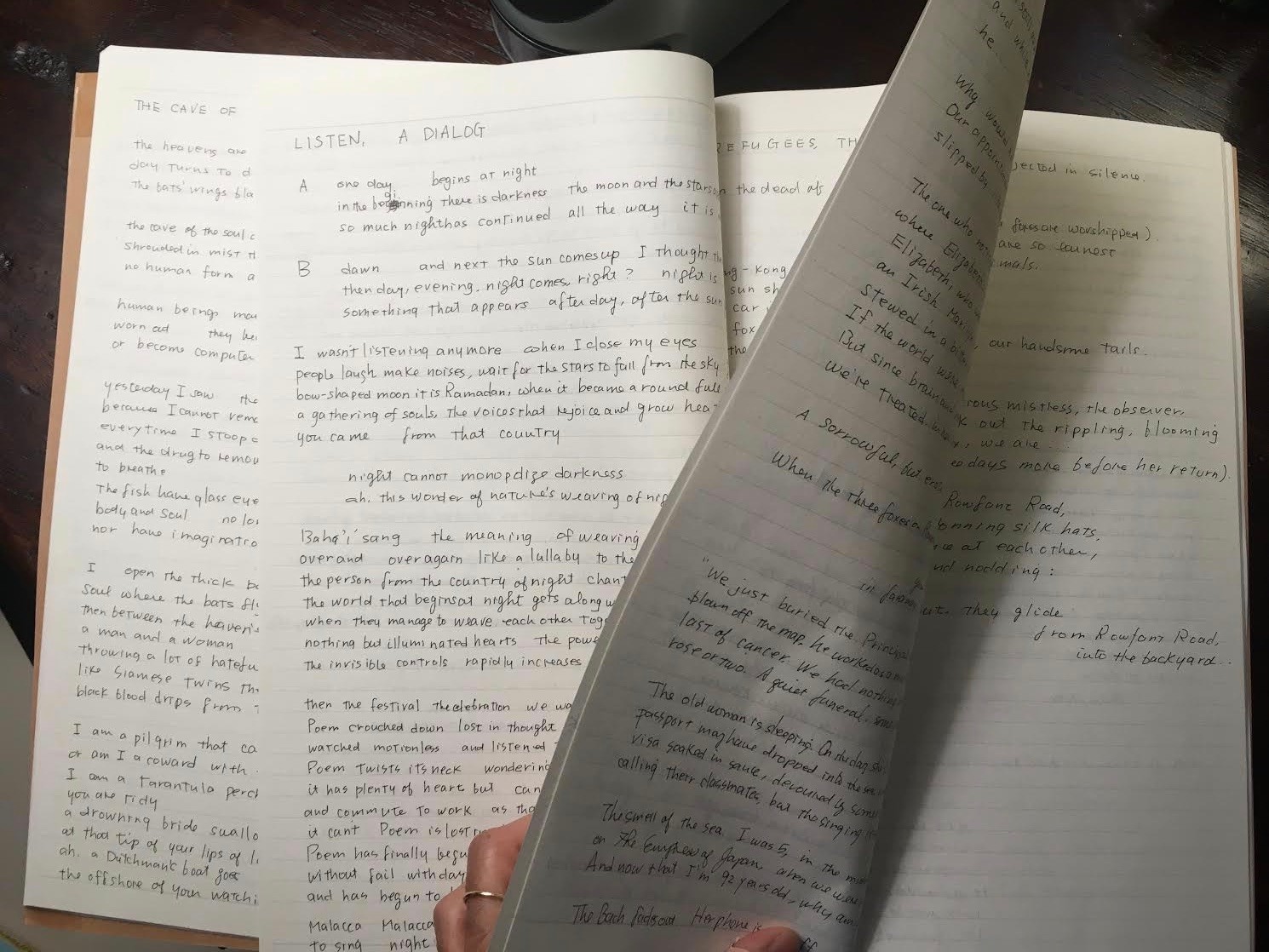
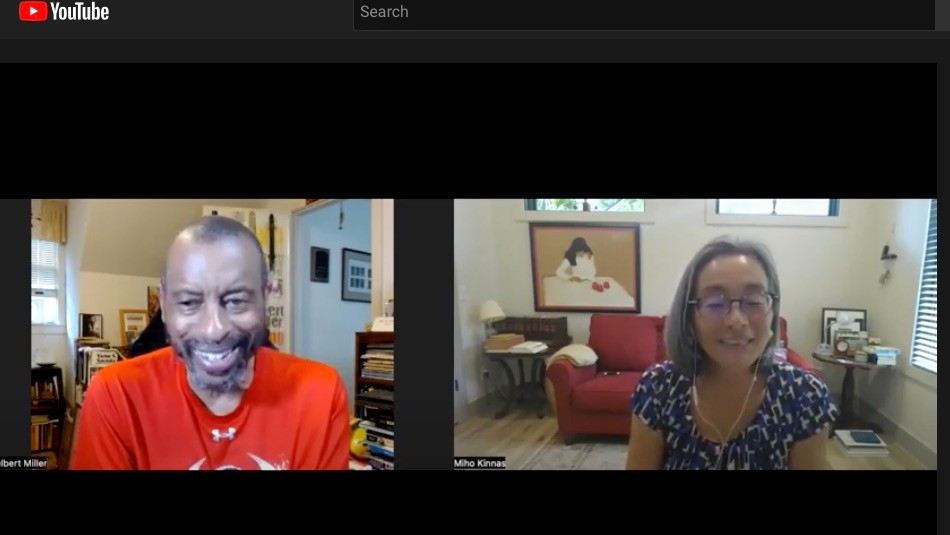
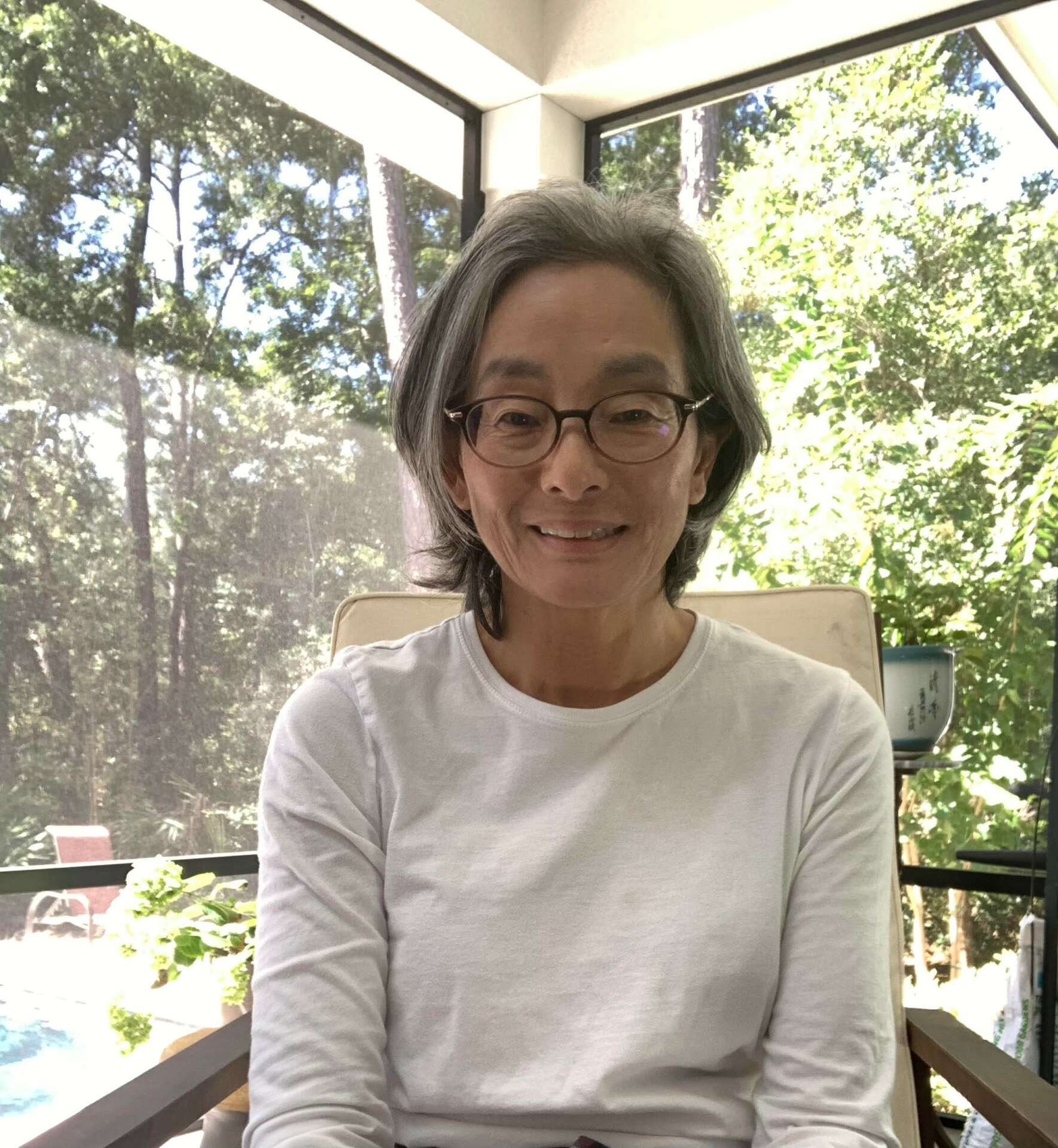
As always, we appreciate you sharing your insights and we’ve got a few more questions for you, but before we get to all of that can you take a minute to introduce yourself and give our readers some of your back background and context?
I am a poet and literary translator, writing essays about books and book reviews. I was born reading! That’s not true, but I was already reading by the time of my first memory. I think I was four. Writing came quickly in my school days, too, but I didn’t set my mind to becoming a poet until later in my life. I was studying to become a literary translator after my stunt as an IT/Finance professional for about twenty years. Then, one day, Allegra Wong, my tutor, teacher, and mentor, told me, “Miho, you have to be a poet if you want to translate poems,” I haven’t looked back since. My first language is Japanese, and English didn’t come until I was an adult, but that didn’t stop me, either. I have an MFA in poetry from the City University of Hong Kong; Math Paper Press of Singapore published two collections of poems, “Today, Fish Only” and “Move Over, Bird.” My free verse, haiku, tanka, essays, translations, and book reviews have been published in various countries. I collaborate with other poets and artists – I am fascinated by how multiple minds can work together. I work with students in South Carolina, where I live. I meet People from different places, nationally and internationally, in my online workshops at writers.com (based in California) and tender leaf translation (in Singapore.) I also lead a summer camp sponsored by the Pat Conroy Literary Center of South Carolina. The core of my literary efforts is in Japanese poetics, and my challenge is how I take advantage of it but am not limited by it. In this sense, also, collaboration plays an important role: we explore and extend our limit by working with others. When my friend, Andrew K. Clark and his wife Casey Clark turned my poem, first into music then to music video, I saw a different aspect of my own poem. When Ann Lisa Cullen created a collage art, I could clearly see what others saw in my poem. I also write more traditional Japanese linked from poetry with Lenard D. Moore. Lenard’s use of this form is very solid and I learn a lot by writing with him. I teach linked poems and the student’s unexpected collaborative outputs are priceless.
Do you think there is something that non-creatives might struggle to understand about your journey as a creative? Maybe you can shed some light?
The difference between creatives and non-creatives is, actually, not much. None of us lives out our life without being creative. Making a living is one of the best arts we have.; we won’t survive what life throws at us without being creative.
So-called creatives, as you know well, come in different sizes and colors. Some are better known than others. Some make a good living from their “art,” and others don’t. Money doesn’t determine everything, and I am not trying to sound sweet by saying even how you place your coffee cups can be art, either. Although, it definitely can be. What I want to say is if you tell yourself you are creative, things will look differently.
Many writing people wonder, especially in the beginning, “Can I call myself a writer or a poet?” Today, I feel I have cleared the bar I set, and I answer the question, “What do you do?” with “I am a poet.” Poetry is at the center of my heart, and I live accordingly. That’s all there is to it.
The difference is whether you perceive yourself as creative or not is actually up to each one of us. There are so many ways to perceive oneself as an artist. However, once you do, you will find a way to actualize the perception. It is like a romantic encounter; once you know you are in love with the person, you will know what to do.
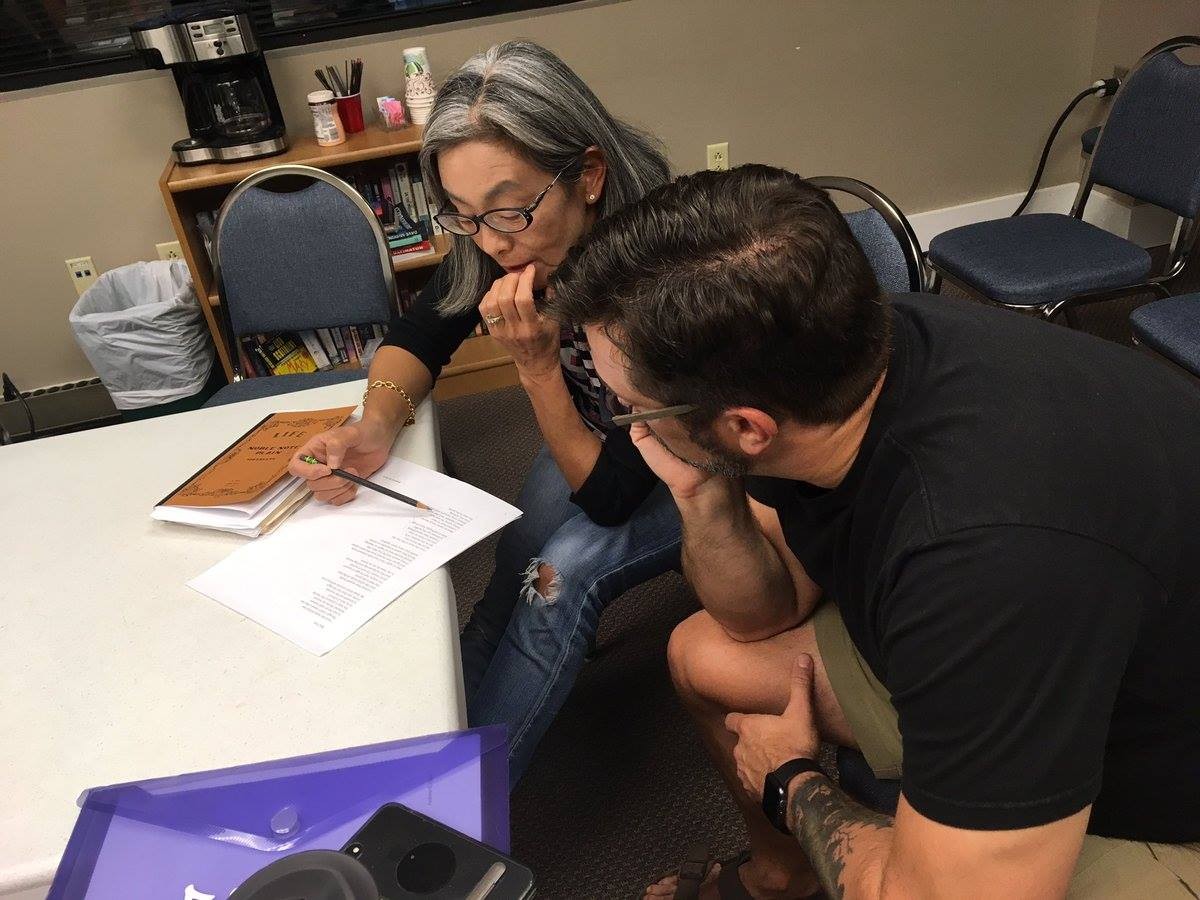
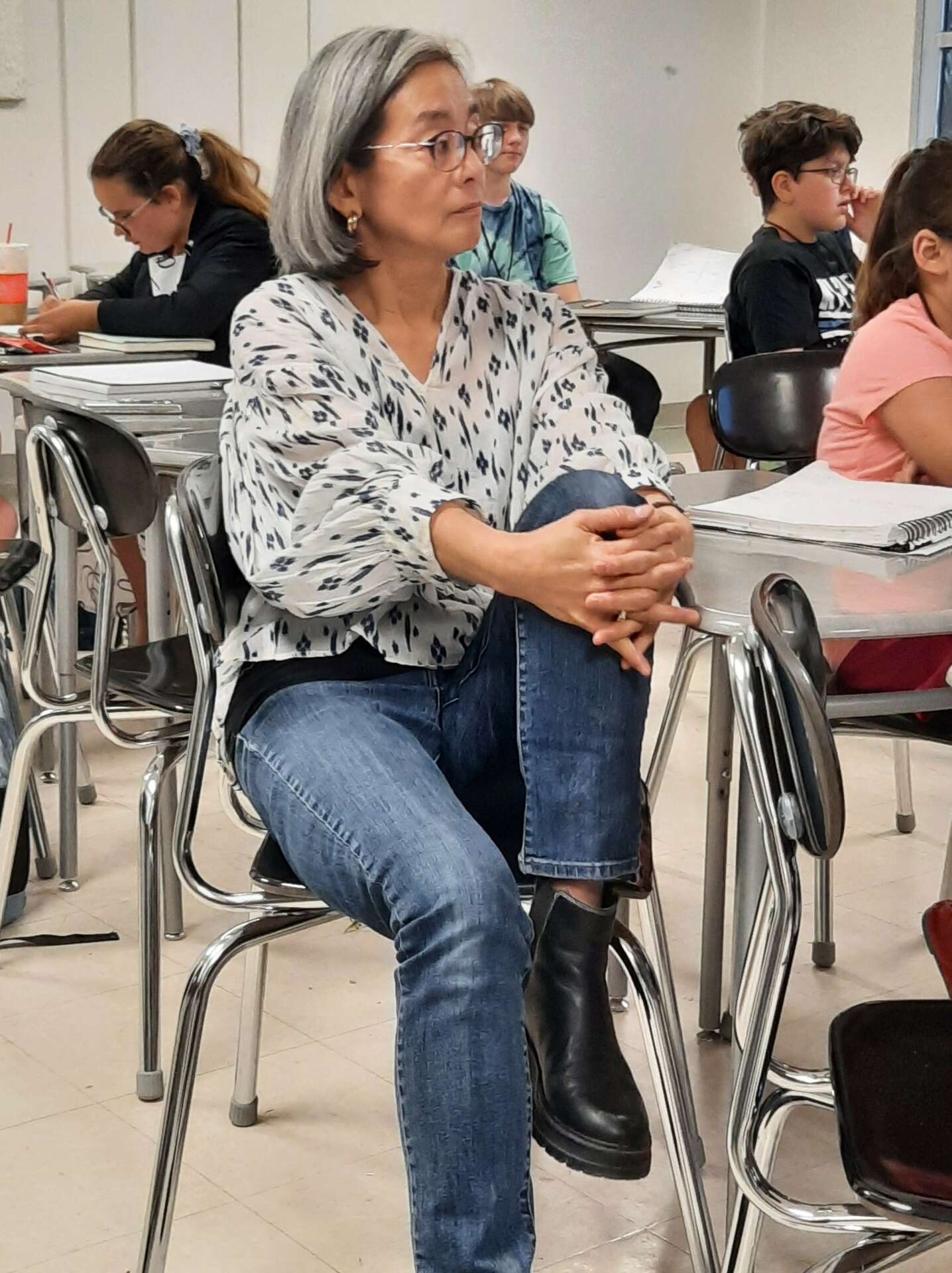
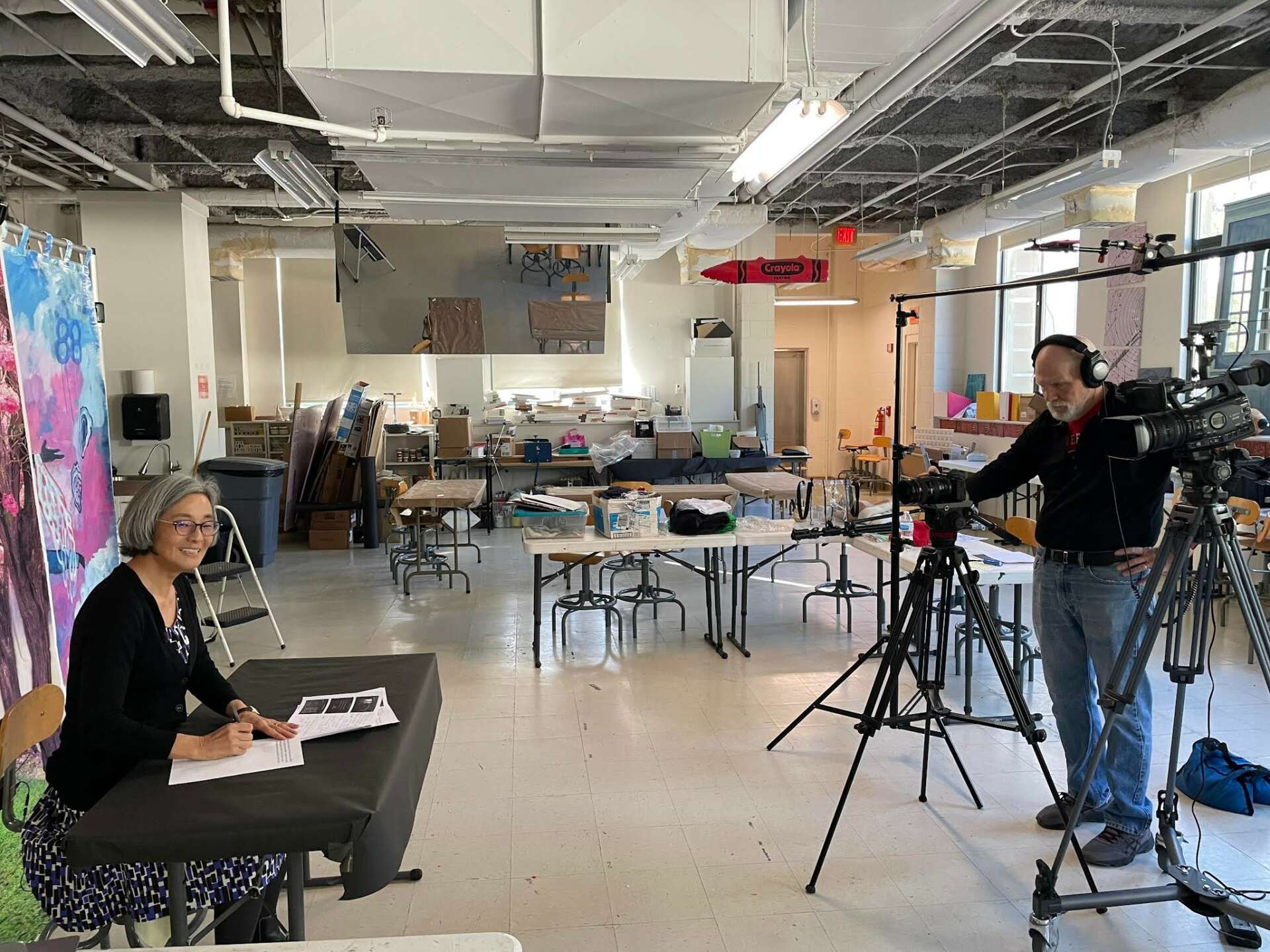
Have you ever had to pivot?
Life is full of pivoting moments.
For me: marriage, international relocations, and the birth of a child definitely were pivotal obstacles. I married a young American without a prospect. I changed my college majors from the dreamy Comparative Cultures at a prestigious private college in Tokyo with a great possibility of working for a publishing company through my father’s connection to an ESL student in the U.S. who studied Computer Science to secure future employment.
Although it was not the career I had in mind, I enjoyed the booming industry’s fast-paced, competitive professional life. My husband persevered and began doing well in his banking career. I took a year off when we had our child, but my employer then had a favorable system for women, and I could return to work at the same pay after the year. We, of course, adored our little girl.
Then, my husband’s career took us to different countries. Luckily, Hong Kong allowed trailing spouses to work without applying for a separate working visa; I somewhat continued my professional life. Working conditions in Tokyo and Hong Kong were very different. Hong Kong was far more progressive regarding the prospects for women and younger people. So working in Hong Kong was even more exciting. Hong Kong was still a colony when we moved there. Considering the situation in Hong Kong today, I cannot help but think about what could have been done differently by the time of the handover when the young people facing a different reality and protesting today weren’t even born.
We then moved to Shanghai thinking Hong Kong and Shanghai couldn’t be that different. But they were. I had visited China as a tourist earlier but living in a place (for nine years) is another thing. I needed to learn Chinese. My daughter went to a new school. My husband had the Chinese regulator to deal with. It was a booming period for China, but of course, we faced the 2008 financial meltdown like everybody else, and ours were with “Chinese characteristics.”
My interest in books continued all along – I was a bookworm growing up and still am one. As I slowed down on my workload while living in Shanghai, I took up creative writing seriously.
As my daughter graduated from high school and went on to a university in the U.S, I began my low-residency MFA in Hong Kong and completed it just in time for me to move to the USA. Although it was a welcomed change to be on the same continent with our daughter, this relocation uprooted me again. My first book was published in Singapore, my poems were in Hong Kong journals, and I did my first reading in Shanghai. I didn’t know anybody when I moved to Hilton Head Island, South Carolina. I hardly knew anybody in the country. Yet, I met many helpful, generous people and began to make a new place my home as a poet.
Contact Info:
- Website: https://thepetigrureview.com/issue-15-fall-2022/ , https://www.wetcementpress.com/wcpmag2-miho-kinnas , https://www.literaryshanghai.com/reviews/, https://writers.com/course/poems-of-all-sizes-haiku-tanka-and-japanese-poetic-forms https://courses.tenderleavestranslation.com/blog/on-a-stone-pillow
- Youtube: https://www.youtube.com/watch?v=R8s6mPTk8Uw https://www.youtube.com/watch?v=DEaIE2TMneU
Image Credits
Jeff Brown Carrie Hirsh Lisa Anne Cullen


